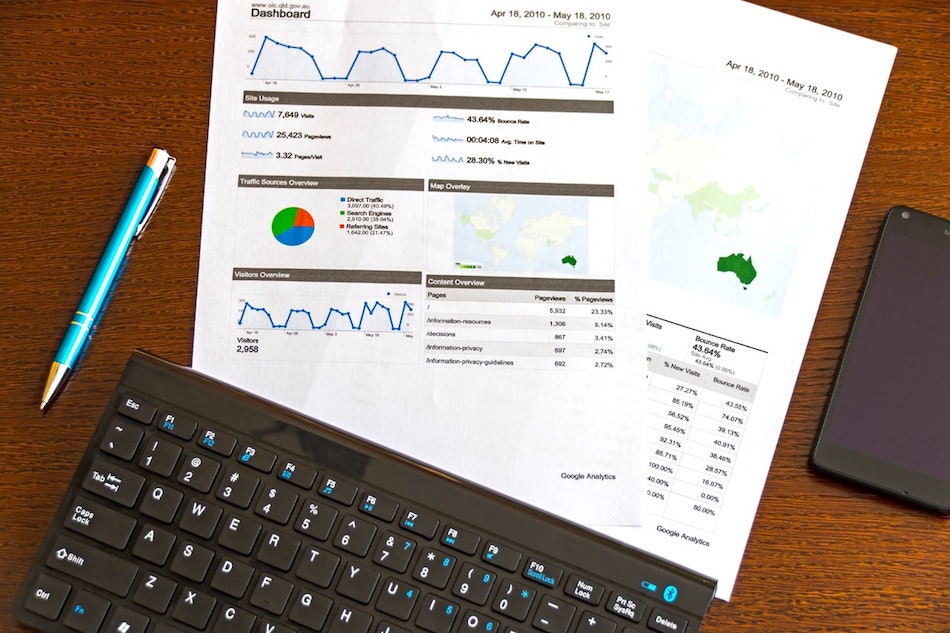Are you better suited to become a business analyst or a data analyst?
In smaller organizations, these job titles are sometimes used interchangeably to describe roles involving data or systems analysis. Larger organizations, however, typically employ both data analysts and business analysts to perform unique duties, making the differences between the two careers important to understand.
Here’s a look at what these roles entail and advice for deciding which career path is right for you.
Data Analytics vs. Business Analytics
Data analytics involves analyzing datasets to uncover trends and insights that are subsequently used to make informed organizational decisions. Business analytics is focused on analyzing various types of information to make practical, data-driven business decisions, and implementing changes based on those decisions. Business analytics often uses insights drawn from data analysis to identify problems and find solutions.
Download Our Free Guide to Breaking Into Analytics
A guide to what you need to know, from the industry’s most popular positions to today’s sought-after data skills.
What is a data analyst?
A data analyst’s fundamental job is to tell compelling stories with data that empower organizational leaders to make better, more informed decisions.
The responsibilities of a data analyst often include:
- Designing and maintaining data systems and databases, including troubleshooting potential issues
- Mining and cleaning data in preparation for analysis
- Preparing reports which effectively communicate their findings to organizational leadership and key stakeholders
To be effective in their roles, data analysts must possess the technical skills necessary for data mining, hygiene, and analysis, along with strong interpersonal skills to communicate their findings to decision-makers.
Some of the most essential skills for data analysts include data visualization and presentation skills, Microsoft Excel, Structured Query Language (SQL), and R or Python programming knowledge.
A bachelor’s degree in a related field is typically required for entry-level data analysts. For senior positions, hiring managers often require or strongly prefer a graduate degree such as a master’s degree in analytics.
What is a business analyst?
Business analysts are responsible for using data to inform strategic business decisions.
A business analyst might also hold job titles such as operations research analyst, management analyst, or business data analyst.
The duties of a business analyst typically include:
- Evaluating business processes for efficiency, cost, and other valuable metrics
- Communicating insights with business teams and key stakeholders
- Preparing strategic recommendations for process adjustments, procedures, and performance improvements
Some of the primary skills needed to become a successful business analyst include critical thinking, problem-solving, communication, and process improvement. These professionals must have a firm understanding of their organization’s objectives and procedures so that they can analyze performance, identify inefficiencies, and propose and implement solutions.
Business analysts must have at least a working knowledge of the technology involved in analytics, though the need for hard technical skills is generally lower than for data analysts. For those looking for career advancement opportunities, however, developing an advanced knowledge of mathematics, computer science, and analytics can act as a significant differentiator in the job market.
Entry-level business analyst positions usually require a bachelor’s degree in business administration or a related area of study. As the need for professionals with expert data skills increases, though, advanced degrees like a master’s in analytics or a master’s in business analytics are becoming more popular among job applicants.
What’s the difference?
While data analysts and business analysts both work with data, the main difference lies in what they do with it. Business analysts use data to help organizations make more effective business decisions. In contrast, data analysts are more interested in gathering and analyzing data for the business to evaluate and use to make decisions on their own.
“In the simplest terms, data is a means to the end for business analysts, while data is the end for data analysts,” says Martin Schedlbauer, associate clinical professor and director of Northeastern University’s information and data sciences programs.
How to Choose Between a Career as a Data Analyst and Business Analyst
So, which career path is the right one for you: Data analyst or business analyst? To determine that, you will need to consider three factors:
- Your educational and professional background
- Your interests
- Your desired career path
1. Consider your background.
Business analysts and data analysts tend to come from different educational and professional backgrounds, says Blake Angove, director of technology services at IT recruiting firm LaSalle Network.
Business analysts (also sometimes known as systems analysts), for example, usually have earned an undergraduate degree in a business-focused major. They mostly use data to make business operations more efficient, and they have knowledge of (but aren’t necessarily experts in) various programming languages.
“Business analysts might take requirements from the business and work between the business and the technical team to develop a software package or implement a new CRM,” Angove says.
Data analysts, on the other hand, work with large data sets all day to identify trends, make charts, and create visual presentations for the business to use to make decisions. These professionals usually come from STEM majors and often have an advanced degree and a more extensive background in math, science, programming, databases, modeling, and predictive analytics.
2. Consider your interests.
Do you obsess over numbers and statistics, or are you more of a problem-solving businessperson?
Business analysts enjoy working in the corporate world and are more interested in finding ways to solve problems, Schedlbauer says. They might be tasked with researching, organizing, and overseeing the implementation of a new workflow, for example. These people are often naturally born communicators—both written and oral skills are essential since they must explain technical messages to stakeholders in layman’s terms.
Data analysts are numbers-driven people who excel in subjects such as statistics and programming. As the gatekeepers for the business’s data, they’re entrenched in databases and interested in extracting data points from complex and often disparate sources. It’s also important for data analysts to have a deep interest in and extensive knowledge of the industry they work in, Schedlbauer says.
3. Consider your career path.
Though business analysts and data analysts share some similarities, including high salaries, they differ in their potential career trajectories.
Because business analysts are not required to have as deep a background in programming as data analysts, entry-level positions may pay a slightly lower salary than data analysts, Angove explains. However, for those in advanced roles or in high-demand industries, salaries can extend beyond six figures. For example, the average salary for a mid-level ERP business analyst working in technology is $110,000, according to Robert Half’s 2022 Salary Report.
Advanced degrees and certifications are often necessary to move from the business analyst role into a more analytics-driven career.
Data analysts also enjoy high job security and competitive pay. For example, data analysts working in the technology sector typically earn between $87,500 and $126,250. Because these professionals work primarily in databases, there’s room for advancement with the acquisition of additional programming skills like R and Python. Additionally, data analysts can readily shift into developer careers and data science roles with advanced degrees.
The Difference Between Data and Business Analysis: More Than Just Semantics
Despite the differences between data analysts and business analysts, individuals in both careers have promising futures.
“They’re both in strong demand right now,” Angove says. “Data science is a hot-button issue for many companies, and a lot of them are hiring and building out large data teams.”
No matter which career path you ultimately decide to pursue, there are steps you’ll need to take to prepare yourself for the workplace. Perhaps most importantly, you’ll need to develop the skills required for your desired position and complete the appropriate training.
For business and data analysts alike, having advanced knowledge of the theoretical foundations and practical tools of analytics can have powerful career outcomes. Research from Burning Glass Labor Insight shows that 25 percent of employers hiring data analysts prefer or require candidates to have graduate degrees.
As important as it is to build these skills, it’s also essential to find a program that meets your needs and will put you on the path toward success. Northeastern’s STEM-designated Master of Science in Business Analytics, for example, equips students with the resources they need to break into or advance in the industry.
The program is led by industry-aligned faculty who bring their own experiences in the workforce to the classroom every day. In addition to extensive networking opportunities, the program’s signature focus on the tech economy and emphasis on experiential learning prepares students to respond to challenges and deliver successful solutions quickly and confidently.
If you’re interested in breaking into or advancing your career in analytics, take the first step, and download the free guide below.
Editor’s note: This post was originally written in August 2017 and has since been updated for accuracy.







Related Articles
Master’s in Project Management or an MBA: What’s the Difference?
Is a Data Analytics Bootcamp Worth It?
5 Practices of Exemplary Leaders